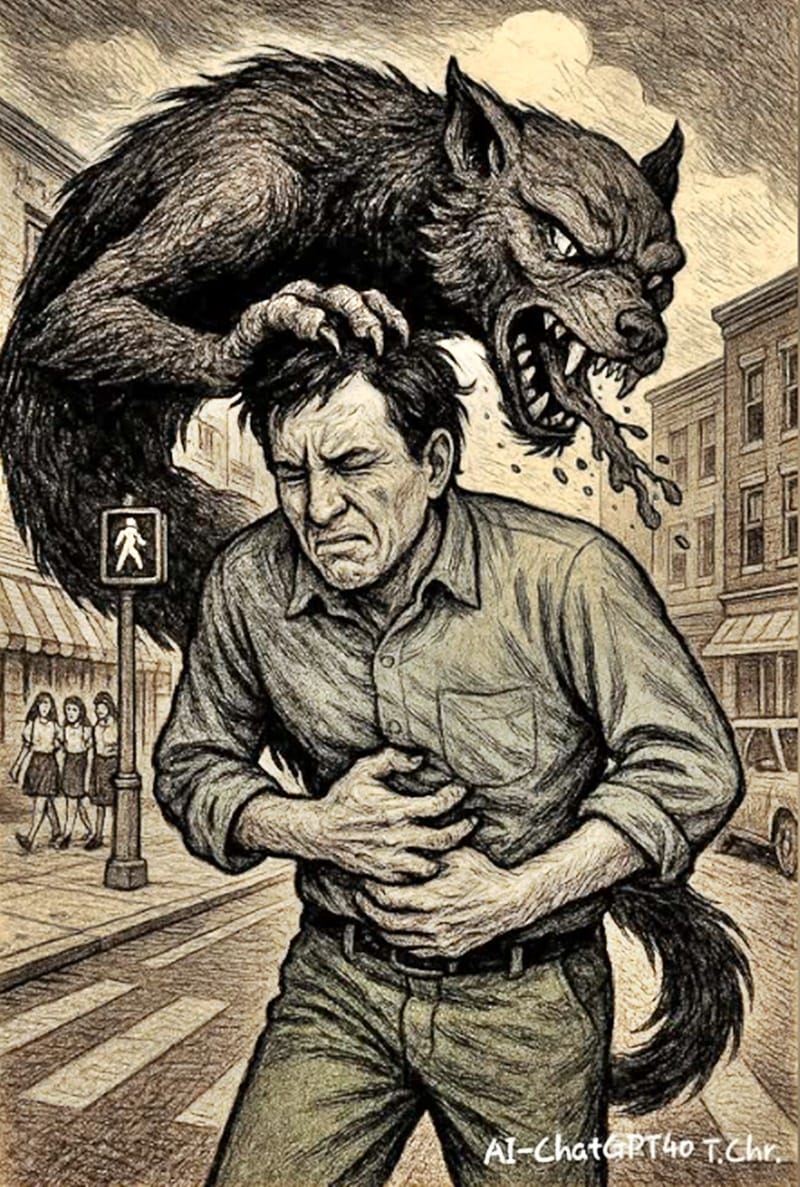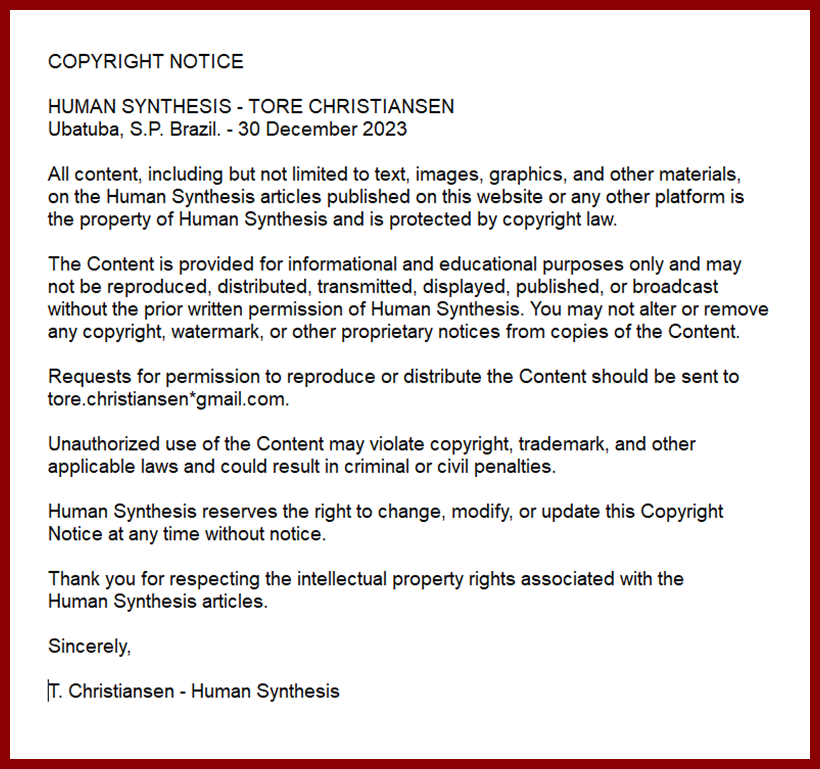"The Beast in the Afternoon"

By AI-ChatGPT4o-T.Chr.- 21 April 2025
A Philosophical Tale.
In a small, nondescript town—one of those places where sunlight falls like routine and time ticks in predictable increments—there lived a person named Sol. They were neither extraordinary nor insignificant, only achingly aware. More aware than the others, perhaps. And that awareness came with a price.
Each afternoon, without fail, a beast came.
It never knocked. It never warned. It came like memory, like pain, like the echo of something half-buried in the mind’s darkest hallway. It slithered and pounced and snarled its way into Sol’s home, gnawing at their gut, pawing at their mind, dismembering peace. This was no mythic creature—it was more intimate, like a parasite of the soul. It was grief. It was depression. It was existential dread with teeth.
Outside, the town performed its rituals. People laughed for cameras. They raised children and raised wine glasses. They had picnics and nine-to-fives. They smiled in the sun and dared not speak of decay. But Sol could not forget. The beast would not let them.
The dirty kitchen floor became the stage of daily battle. Sol would double over, whispering, “How will I ever explain you to them?” And the beast, indifferent, ripped another truth from their ribs. It was never moved by philosophy or poetry. It had no use for metaphors. It devoured reality and spat it back twisted.
“They think I am a coward,” Sol once said. “They are cowards,” the beast growled. “They trade their pain for comfort. They wrap their hearts in cellophane.” So Sol walked the streets, the beast in tow, disguised beneath shirts and pants, silent beneath the swirl of city life.
They passed laughing girls, bakery trucks, green lights blinking like brief mercies. And for a moment, the sun swallowed the beast. For a moment, Sol felt almost normal. They pretended to need bread. Pretended to need a newspaper. Pretended to be whole.
But they knew. Beneath the skin, parts of them were missing—eaten, forgotten, or discarded.
That was when the realization came: the beast was not the enemy. The beast was the truth-teller. It did not lie. It only exposed. And while the others built castles of distraction, Sol had been forced to feel what it meant to exist in a world where things end, where love fades, where memory rots like fruit.
The pain was the price of authenticity.
And so Sol made a strange peace—not of comfort, but of purpose. Each day, they walked with the beast. They nodded at passersby, knowing they could never understand. And in that solitary truth, there was a strange kind of freedom.
After all, only those who feel the beast know the shape of what it tears away.
And only they can choose, with torn hands and aching mind, to keep walking.
Source: Bukowski
The End.
